Toyota to develop bZ3 with partners in China
Toyota has announced an all-electric sedan called the bZ3, developed in collaboration between Toyota, BYD and FAW Toyota, which is to be offered exclusively in China for the time being. In addition, according to media reports, there are indications that the Japanese could revise their electric strategy.
++ This article has been updated. Please continue reading below. ++
The bZ3 is based on Toyota’s own e-TNGA electric platform. According to Toyota, the car is 4.73 meters long with a 2.88-meter wheelbase, 1.84 meters wide and 1.48 meters high. Since attention was paid to aerodynamics during development, the bZ3 is said to have a cW value on 0.218, however Toyota does not provide any information on the frontal area.
The Japanese company’s announcement also did not provide any detailed information on the electric drive. Ass such, the design of the electric motors, their output and their arrangement are not yet known. There is no information on the battery’s energy content, but there are other details. For the first time, an LFP battery supplied by BYD will be used in a Toyota. However, Toyota does not specify whether it is the Blade battery from BYD or another LFP cell from the manufacturer. The release goes on to say, “The battery structure, cooling, control, and safety monitoring systems were all newly designed for this car, making its high-quality electrification system efficient, advanced, safe, and reliable.” Up to 600 kilometres range is said to be possible on the Chinese CLTC cycle.
The robust LFP batteries and “extensive electrification technologies refined through many years of HEV development” are also said to provide extra-long battery life in the bZ3. Toyota names as a development goal that a capacity of 90 per cent of the original value should be reached after ten years, “in order to give customers a reassuring feeling.” Whether this development goal will also become 1:1 the later warranty promise for the battery is an open question. In a footnote, the caveat is mentioned that the figure is based on “simulated average usage of the battery cell” and that the actual battery capacity installed in the vehicle varies “depending on driving conditions and operating environment.” “The 90% battery capacity retention rate after ten years is not guaranteed under all conditions,” Toyota wrote.
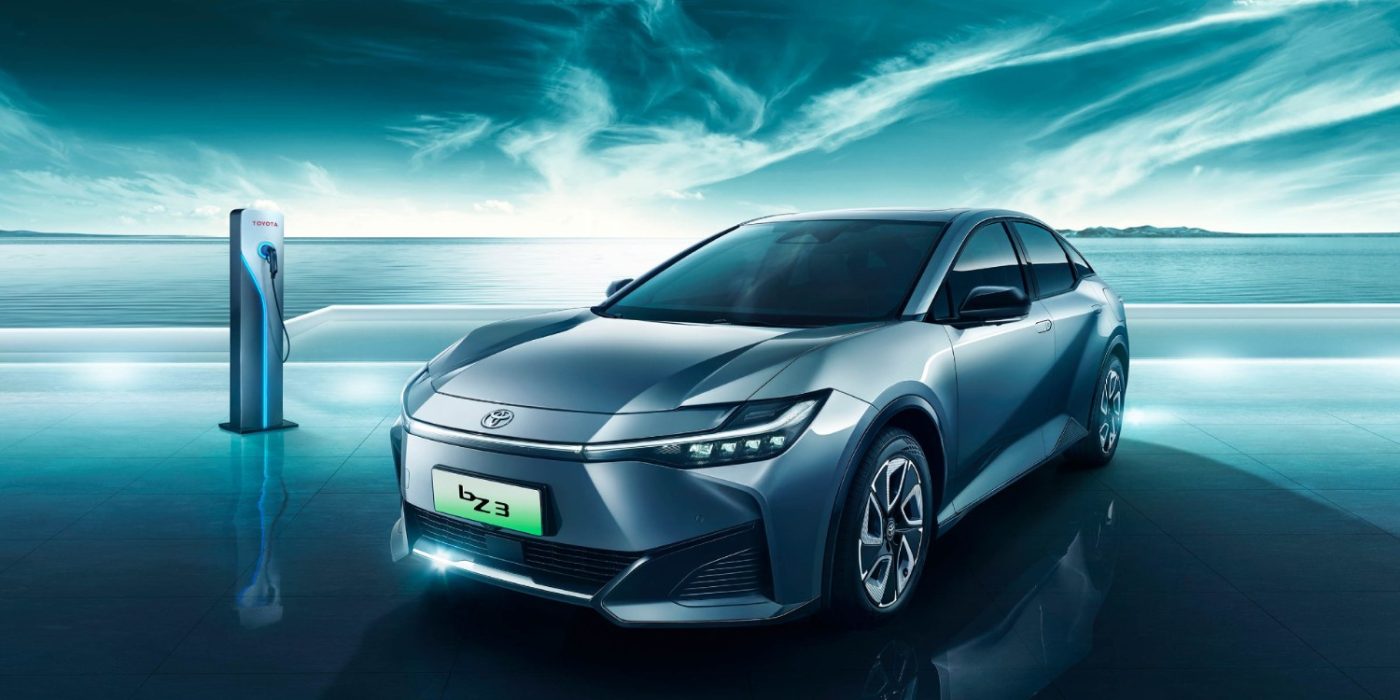
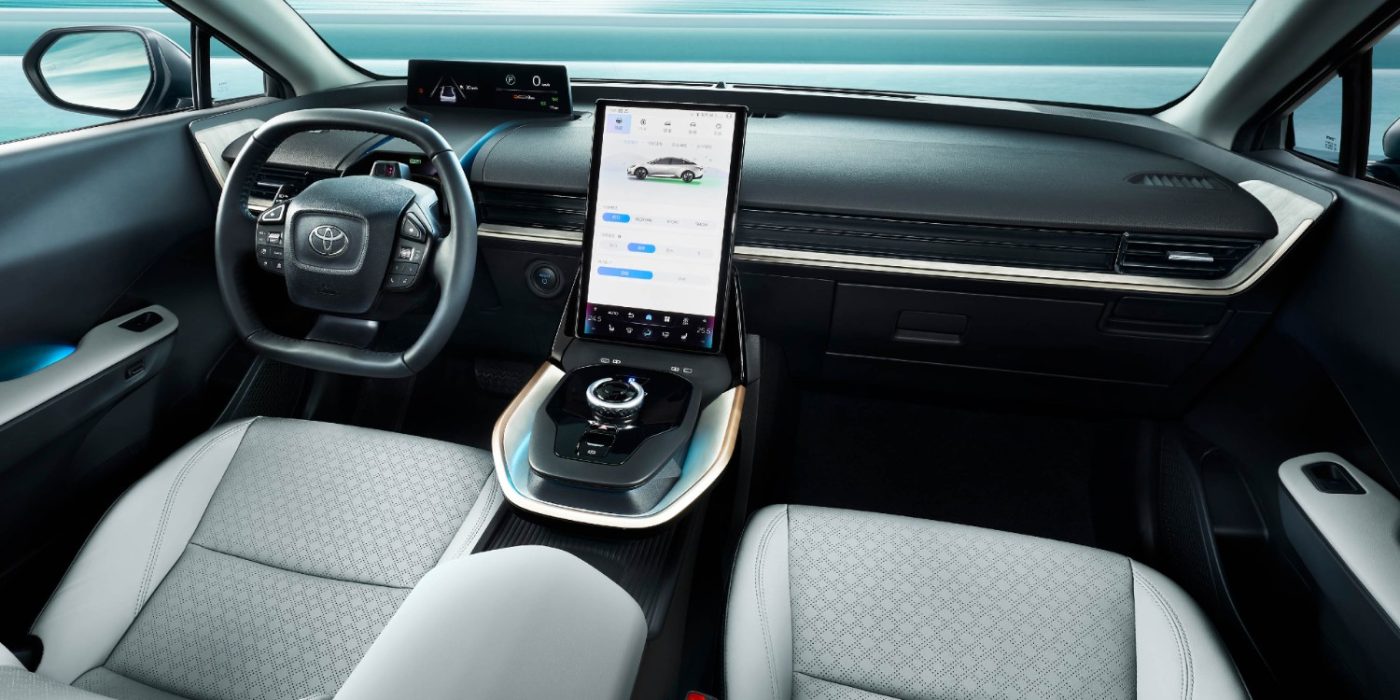
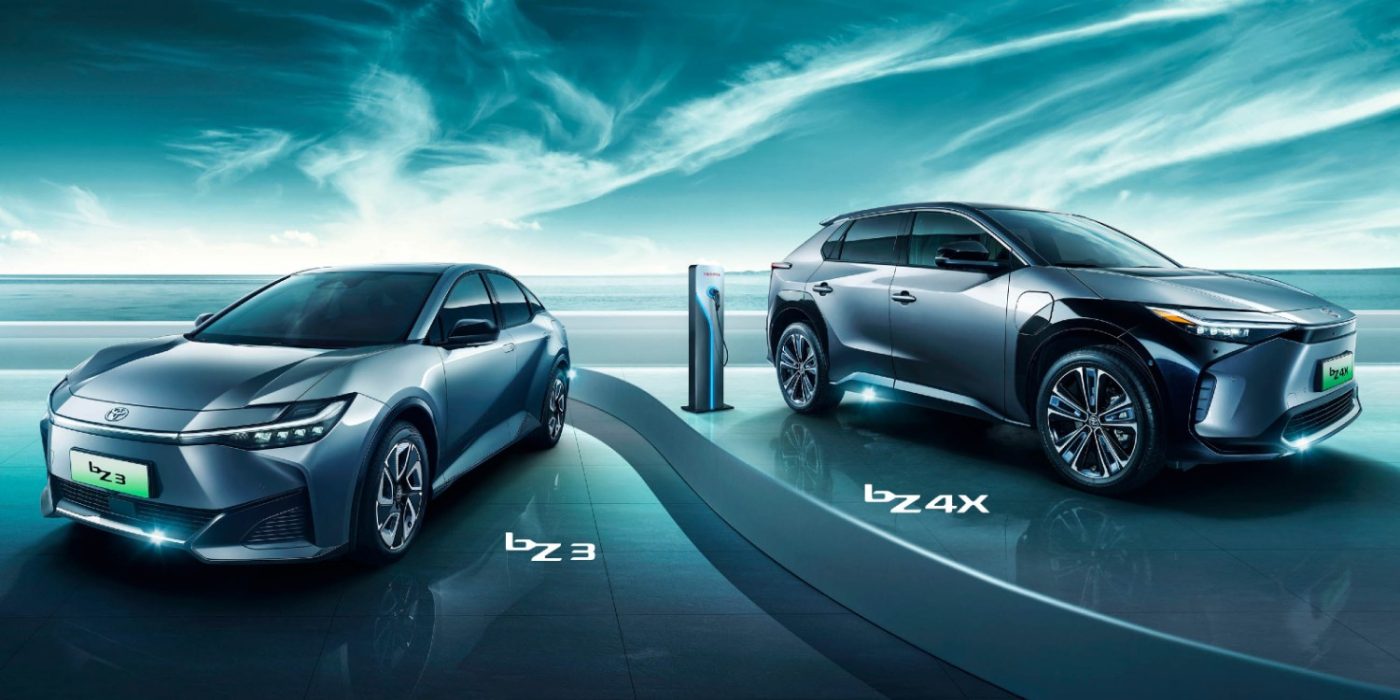
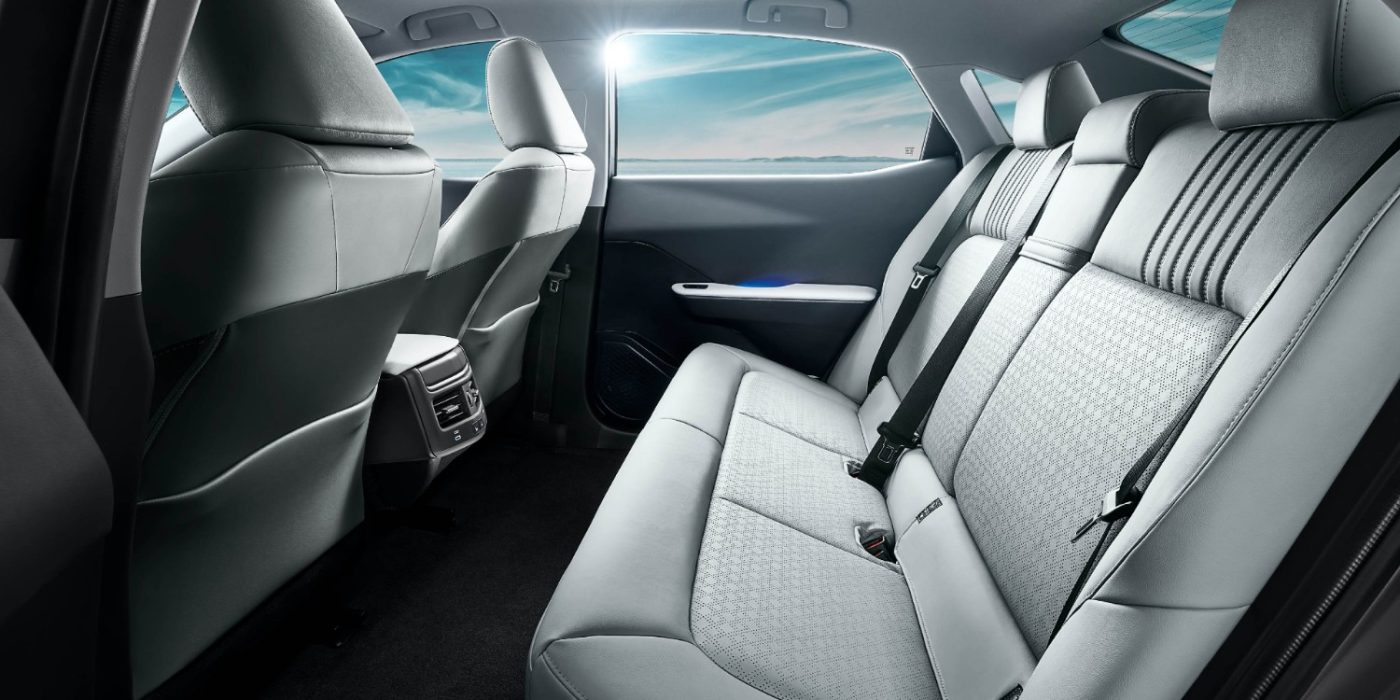
In addition to Toyota itself, the China joint ventures BYD Toyota EV Technology (BTET) and FAW-Toyota were also involved in the development. BTET is the interface to BYD’s battery technology, Toyota contributes the e-TNGA platform, and FAW-Toyota is responsible for production and sales through its dealer network. Exactly when the bZ3 will hit the market and at what prices it will be available is not yet known.
Other electric Toyotas are also likely to follow in China: “Toyota is committed to offering more appealing products to customers in China. It plans to introduce more bZ models, following the bZ4X and bZ3,” the statement said.
But which models on which platforms are involved seems to be an open question, according to a media report. As four people familiar with the plans told Reuters news agency, Toyota’s plan to invest $38 billion in battery-electric cars, which was only announced at the end of 2021, could already be partially scrapped. Akio Toyoda had unveiled a total of 15 concept electric cars in December and announced plans to launch a total of 30 BEV models by 2030.
According to insiders, Toyota wants to lower production costs in order to “better stand up to Tesla and other competitors.” Accordingly, work on some of the 30 electric cars has already been halted. If the plans now being discussed internally were adopted, work on some models could also not be restarted. Specifically, development on the electric SUV “Compact Cruiser Crossover” and the sedan Crown, which were planned for the middle of the decade, are said to be on hold. Toyota did not comment on the information when asked by Reuters.
Whether the optimization of production costs will then result in further collaborations like the bZ3 is an open question. But it seems possible, according to the report: a working group called “Business Revolution” has now been tasked with drafting plans for improvements to the existing BEV platform or for a new architecture by early next year, according to the insiders. So it is not yet clear whether the e-TNGA, which was only unveiled in 2019, will be optimized or a successor developed – and above all by when this work will be completed.
Update 6 March 2023
FAW-Toyota kicked off the production of its bZ3 all-electric sedan in China. Toyota will build the electric car with BYD technology at the FAW-Toyota plant in Tianjin, which has an annual capacity of 200,000 vehicles. Deliveries of the Toyota bZ3 will start this month. Prices range from 189,800 to 219,800 yuan (about 25,800 to 29,900 euros).
Toyota is ringing in the pre-sale of the bZ3 with a discount campaign: In exchange for a down payment of 2,000 yuan (270 euros), the first 5,000 customers who place a binding order will receive an incentive of 5,000 yuan (680 euros). Existing FAW-Toyota customers will even receive an 8,000 yuan (1,085 euros) discount if they replace their old car or a 6,000 yuan (815 euros) discount if they buy the vehicle on top of their current model. The first 5,000 customers will also receive free maintenance for ten years or 200,000 kilometres, 24-hour roadside assistance and a free wallbox.
global.toyota, reuters.com, carnewschina.com (update)

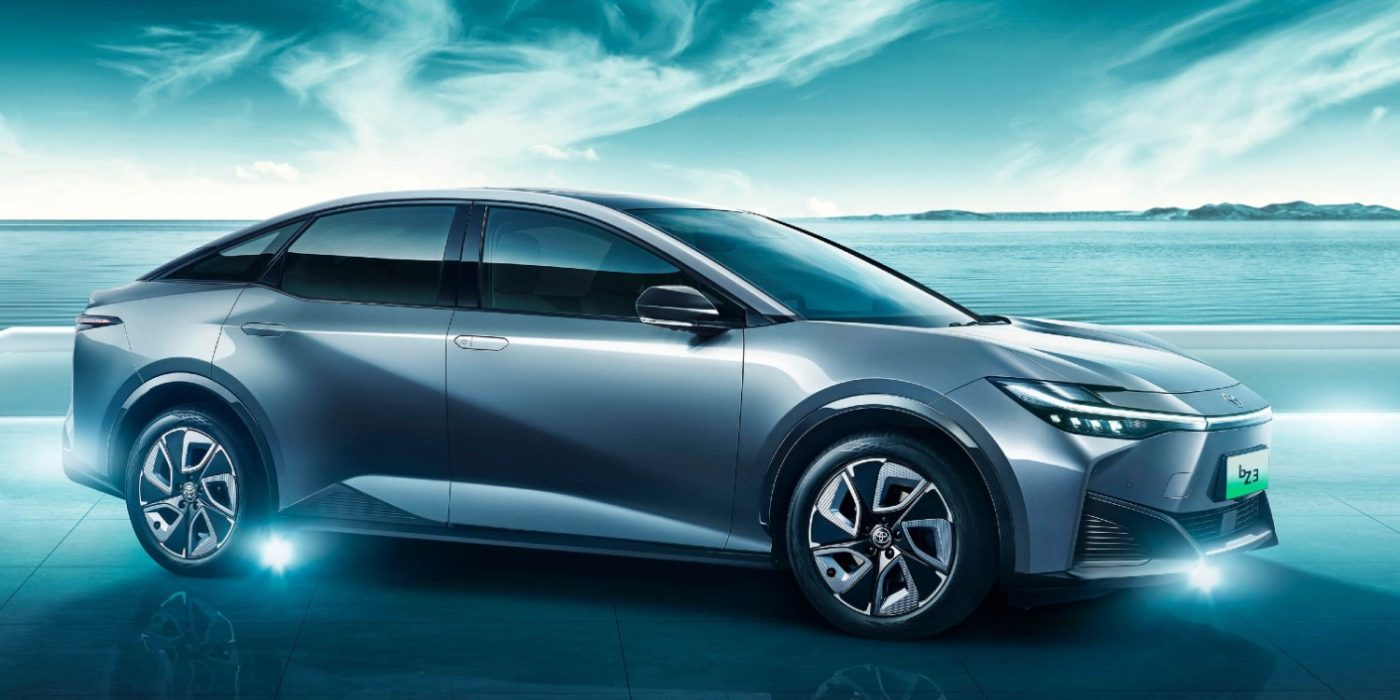
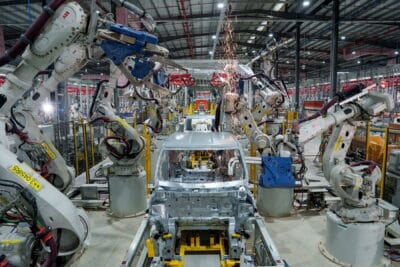
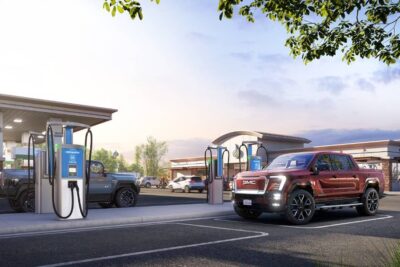
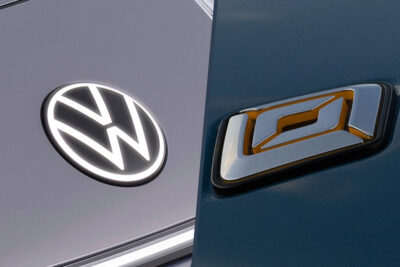
0 Comments